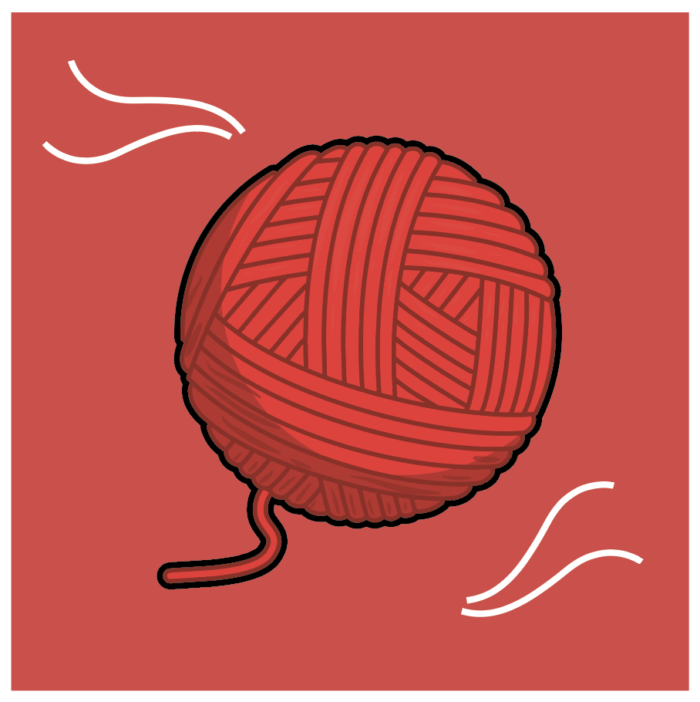How to Actually Get Stuff Done, Every Day of the Week
With so many time-management tips out there, what to choose? We cull through the clutter and bring you a daily guide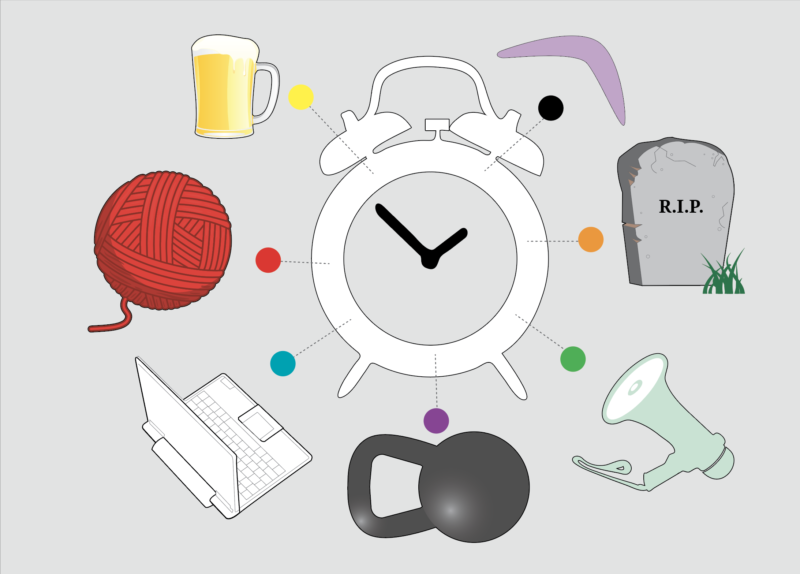
(Illustrations by Heather Jones)
It’s summertime and the livin’, as they say, is easy.
But the workin’ is hard.
Need some motivation? How about time-management tricks? Let’s be honest, there’s nothing more satisfying than willing your spongy brain into doing something it doesn’t want to do.
Here are some tips, compiled from my daily newsletter covering work, creativity, and the existential crises that crop up in most people every six weeks or so. The world is busy. You are busy. Brass Ring Daily cuts through all the muck that’s thicker than the Gowanus Canal. You too can locate and reach for your own personal brass ring–in whatever form it takes. Let’s go.
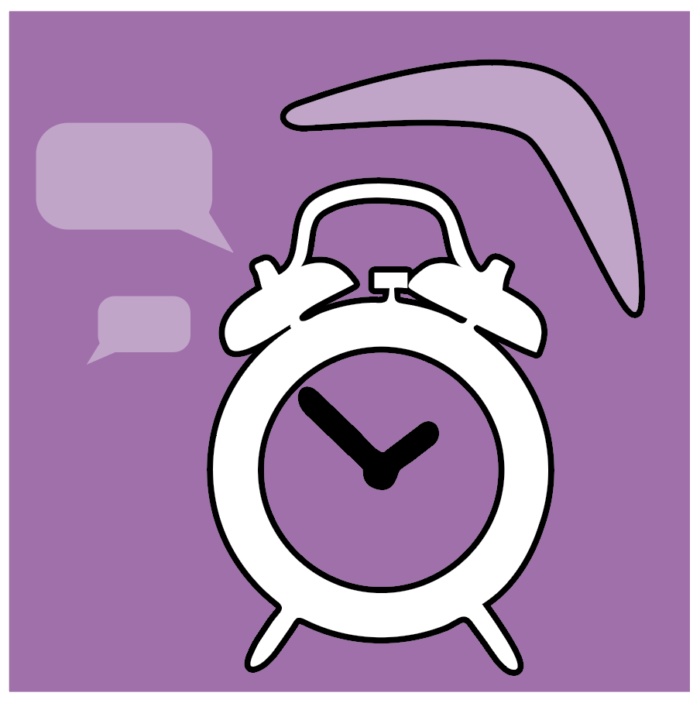
Sunday: Sneak in a Valuable Work Hour
Weekends are glorious. Brunch. Walks. Sunshine. … More work? Devil’s advocate here. Sunday is an ideal time to squeeze in an hour or two of work. Colleagues aren’t seeking your attention, your inbox is a graveyard, you’re not eating a sad desk lunch.
I’ll draft emails and use Boomerang for Gmail to schedule them to send during reasonable working hours. (Do not be that person who sends work emails on a Sunday night. That is an evil person.)
Monday: Get Serious About Your Time
It’s go time. You enter the office and try to remember where you left off on Friday. Which threads must I follow? Who needs a follow-up? Which plates am I spinning? By the time you unscramble all those eggs, the day’s over.
Instead, Monday could act as a reset button for your short attention span. The start of the week can be defining–clean slates, new goals, big projections. Instead of thinking, “Where was I last week?” try to think, “Where do I want to be at the end of this one?”
Start by becoming deadly serious about your hours. Take a cue from Warren Buffett, the man who sometimes only has one appointment all week. He may be worth $84 billion, but as he says, “Time is the one thing I can’t buy.”
So survey your week and drop any meetings that won’t serve you. And don’t get sucked into your inbox right away. That leads to 50 tabs springing up and you playing Whac-A-Mole to murder them. That’s defense.
I like to use this little rule I stole from Getting Things Done by David Allen: Touch everything only once.
Don’t pick up that piece of paper unless you know where you’re filing it, and don’t read email until you know you’ll have time to respond.
On Monday, you can choose what to consume. You can drown out the noise. You can decide what gets your attention. You can play offense.
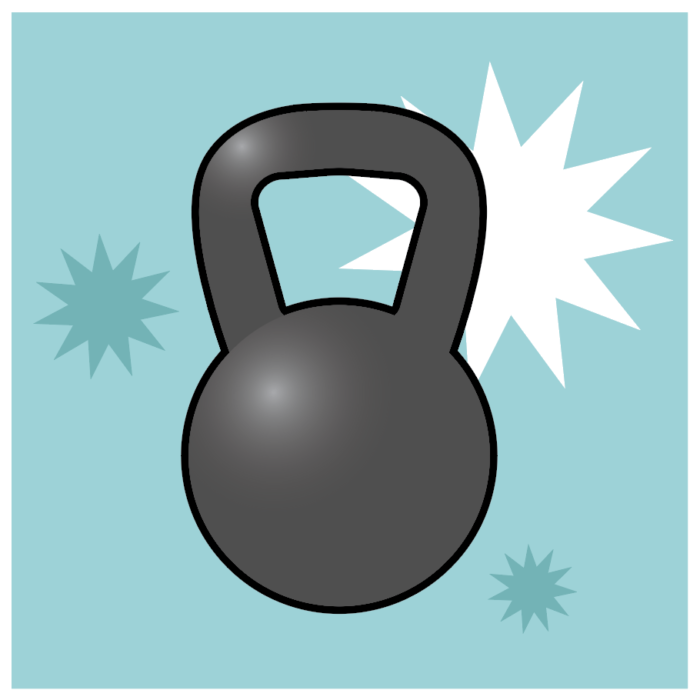
Tuesday: Circuit Train Like a Beast
Your Garfield Monday is over! You’ve triaged your life! Now it’s time to shift into focused work with high-intensity brain training.
If HIIT workouts are great exercise, they’re great for work, too. Don’t forget to hydrate.
Some call this concentration hack the Pomodoro Technique. I call it trick-myself-by-racing-against
Basically, you set a timer for a ridiculously short time (I start with 15 minutes) and sprint to your destination, whether that’s writing or editing, responding to emails, or whatever the non-hunchback people who don’t work at their computers do for work.
Then you take a break. Repeat. Deliberate focus on one item leads to real results.
Google “timer 15 minutes” and one pops up in your browser, and the alarm is just shrill and annoying enough. I also like an analog version called Miracle Cube. (And yes, I had to set the timer to finish writing this story about time management. I am not above the law.)

Wednesday: Think About Your Death
You need to keep up your momentum, but hump day has that terrible moniker for a reason.
If your enthusiasm flags midweek, download the Chrome extension Death Clock. It counts down the days until your impending demise, apparently to inspire you to think about how you’re spending your time. Hey, nobody said this was going to be fun, OK?
When you’re done weeping and want to incorporate less morbid organizational tools into your routine, here are a few go-tos:
Google Keep creates lists and syncs to your Google accounts. Very clean. Maybe my new best friend?
Trello is great for project management. Catnip for office people.
Ye olde classic Evernote. I have 2,003 notes saved. At least three of them are valuable.
And this week, I spent 29 hours and 54 minutes staring at my computer, with seven of those hours in Pages, over six hours in Gmail, and 47 minutes on Reddit. I know this because RescueTime told me. The program tracks where you spend your time, then judges each activity or website from “very productive” to “highly distracting.” Every week, it is my greatest source of shame. Try it!

Thursday: Ask “What Am I Doing?”
This is your make-or-break day. The day that either glides you into an efficient and calm close to the week, or spirals you out of control.
If you’re spiralizing, turn to the question I ask most often on Thursdays: What the hell am I doing?
Usually I’m in tab hell, my phone is lighting up, and my mind is looping like an unkillable GIF.
When I get this distracted, I finally snap out of it and ask: Wait … what am I *actually* doing?
Ah yes. Clarity. Direction. I pick the most immediate and urgent thing I need to do. One thing. So simple it’s stupid. Then do it.
I just went to write this question on a notecard and pin it to my desk. But wait a second … what was I supposed to be doing? Oh right. Finishing this article.
Friday: Honestly Audit Yourself
The precious day of reflection and, hopefully, burgers and beer on a patio somewhere.
It’s so easy to focus on rushing out the door at the end of a long workweek, but a little five-minute trick has improved my weeks (and life) for the better.
A couple months ago, I added a recurring Friday task to my calendar called WEEKLY AUDIT, with these questions: What went right? Wrong? What can I do better?
I quickly assess how the week shook out, considering: Was my writing productive? Did I make enough money? How was my social life? How about my time management?
For future-focused folks, this is a helpful reminder to look back, even for a few minutes. It’s how I discovered I’m much happier when I write Monday’s newsletter on Friday (instead of waiting until Sunday), that afternoon meetings are always trouble unless I write in the morning, and that reading a bit of a play or novel when I wake up makes me more excited to start the day compared to when I fall into the infinite scroll.
Weekly audits. They’re good. I swear!
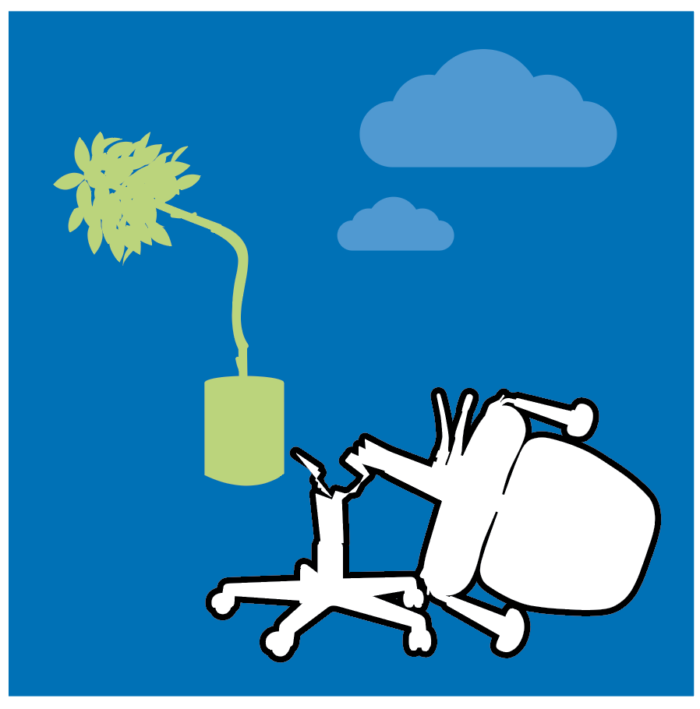
Saturday: Get Rid of Your Mental Junk
Sweet, sweet catharsis. Are you doing work today? No? Good. But even if you’re not physically doing work, you might still be committing mental energy to some lingering tasks.
The biggest time succubus is the negative talk that can plague you at the end of the work week.
We focus a lot on what we want to bring into our lives. But it’s also important to cut out what needs to go. And so on the weekends, it’s time to say goodbye.
Goodbye, cynicism. Goodbye, procrastination. Goodbye, lowballing myself. Goodbye, emails I say I’ll respond to, but actually never will. Goodbye, healthy eating for every single meal. Goodbye, getting angry on my commute. Goodbye, frugality. Goodbye, banality. Goodbye, critics. Goodbye, purposeless Twitter scrolling. Goodbye, books I have no desire to finish. Goodbye, plants that I accidentally killed.
Is there something that needs a goodbye from you?
In Conclusion
Finally, what I’d like to leave you with is this …
People will forgive you. They’ll forgive you for not responding instantly to their email or text. For needing alone time. For focusing on your work or your art for a bit, and letting other obligations slide.
For the most part, people will forgive you if your focus must be elsewhere. Because they know one day they’ll be asking for your forgiveness, too.





